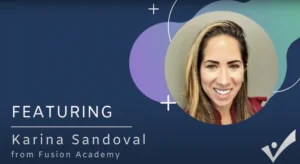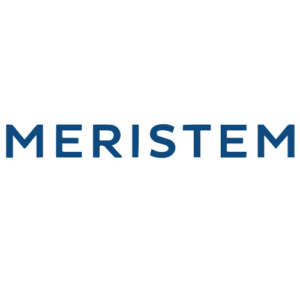5 transdiagnostic ADHD intervention strategies
 Attention-deficit/hyperactivity disorder (ADHD) is often complicated by comorbid conditions—additional diagnoses—like anxiety, depression, or autism spectrum disorder. The effects of ADHD and co-occurring disorders can impact students’ progress in pursuing their academic and career goals. Transdiagnostic interventions are strategies designed to address multiple disorders.
Attention-deficit/hyperactivity disorder (ADHD) is often complicated by comorbid conditions—additional diagnoses—like anxiety, depression, or autism spectrum disorder. The effects of ADHD and co-occurring disorders can impact students’ progress in pursuing their academic and career goals. Transdiagnostic interventions are strategies designed to address multiple disorders.
Strategies for ADHD & comorbid conditions
A tailored combination of interventions can be effective at minimizing multiple challenges. For example, if you have ADHD and anxiety, these treatments will address symptoms of both. List your co-morbid struggles and assess how the following strategies might work for all of them.
- Nutritional intervention. There’s evidence that deficiencies of polyunsaturated fatty acids (PUFA) could be related to ADHD. Supplementing your diet with a combination of omega-3 and omega-6 fatty acids could help improve your ADHD symptoms. Although better results have been observed with children and teenagers, this treatment also holds promise for adults.
- Cognitive retraining. Cognitive retraining programs focus on building specific skills like attention, problem-solving, or reading comprehension through games and exercises. Many modern brain training programs use video or computer game formats, while in-person programs use physical games or worksheets. You can find self-guided cognitive retraining apps online, or consult a professional.
- Brain stimulation interventions. Transcranial magnetic stimulation (TMS) is a non-invasive procedure that uses magnetic fields to stimulate nerve cells in the brain to improve symptoms of ADHD. Transcranial direct current stimulation is another non-invasive, painless treatment in which direct electrical currents are used to stimulate specific parts of the brain. These treatments must be prescribed and administered by a trained professional.
- Psychotherapeutic interventions. Cognitive-behavioral therapy (CBT) has been shown to have significant benefits for ADHD. CBT exercises for ADHD help to improve time management, prioritization, organization, problem-solving, motivation, and emotional regulation. You’ll need to work with a certified cognitive-behavioral therapist to get the most out of this intervention.
- Yoga, mindfulness, and meditation. These interventions had a statistically significant effect on the outcomes of ADHD symptoms such as hyperactivity and inattention, as well as executive functioning and on-task behavior. Look for yoga and meditation classes locally, or find online classes to get started.
Commit to a strategy for 30 days
 Integrating these strategies into your daily or weekly routines can boost your healthy habits and assist in your ADHD treatment plan. The key to fully integrating these suggestions into your daily life is to commit to a timeline before drawing any conclusions.
Integrating these strategies into your daily or weekly routines can boost your healthy habits and assist in your ADHD treatment plan. The key to fully integrating these suggestions into your daily life is to commit to a timeline before drawing any conclusions.
Create a baseline before you start by documenting your feelings and behavior. At the end of 30 days, compare how you feel to that baseline. Use a rating system to analyze which single activities or combinations of activities impacted your overall wellbeing the most.
Be determined to achieve your goals and not let ADHD hold you back! Prove to yourself that you can be committed to changing your habits by sticking to a new strategy for 30 days.

M.Ed., BCC, CSS and Co-founder of Thrivister
As co-founder of Thrivister, my purpose and passion is to help young adults with executive function challenges to thrive: manage, organize and be successful in their academics, careers and life. My successful EFS Coaching Method and journey as an ADHD coach, career service specialist, author, blogger, podcaster and board-certified coach for over a decade, has laid the foundation for our platform.
We believe opportunities are plentiful for someone with executive function challenges when they have the support and resources behind them. It is our mission through Thrivister to help as many people as possible be successful academically and into their future careers and life.

7 Trailblazing Celebrities and Icons Living & Thriving with ADHD
Explore the inspiring journeys of 7 influential individuals who have harnessed their ADHD to achieve greatness and make a lasting impact.

Unveiling the Complexities of ADHD: Insights from Dr. David Pomeroy
Unveiling the Complexities of ADHD: Insights from Dr. David Pomeroy https://youtu.be/EotABukIxlo Attention Deficit Hyperactivity Disorder (ADHD) is a multifaceted condition that impacts millions of lives

Navigating ADHD in Teens: Insights from MFT, Kelsey Thompson
Navigating ADHD in Teens: Insights from MFT, Kelsey Thompson https://youtu.be/omQndscdD5U In a recent interview with Kelsey Thompson, a seasoned Marriage and Family Therapist at The

Unlocking Potential: A Glimpse into Fusion Academy’s Personalized Education Model
Unlocking Potential: A Glimpse into Fusion Academy’s Personalized Education Model https://youtu.be/R7BgYW6A6k4 In the bustling world of education, where traditional models often struggle to meet the

Embracing Diversity: Navigating Support for Disabilities in Education
Accommodations in college and beyond come mainly from Section 504, which covers conditions as varied as anxiety and ulcerative colitis, ADHD and asthma, quadriplegia, and cancer. As more students qualify for disability accommodations and feel empowered to take them, long-stigmatized diagnoses have transformed into points of identification and affinity.

Sacramento Country Day School
A beautiful, expansive campus specifically developed to serve Pre-K through 12th grade students across our Lower, Middle, and High School. Small class sizes and a dynamic learning environment offer our students opportunities to discover and joyfully pursue their unique strengths.

Meristem
Meristem is a unique program dedicated to preparing neurodiverse young adults for a life of greater independence and fulfillment. We are located near Sacramento, California, on a 13-acre campus in Fair Oaks. Meristem students are young adults, between the ages of 18-28, who show the potential to achieve greater independence and self-sufficiency upon graduation. They often have aspirations for career and/or college, and are willing to discover and work towards their passions and goals. Space is currently available to live on-campus and gain independent living and social skills while attending our day program or pursuing college or employment goals. Ask about scholarships opportunities for families eligible for financial assistance.

